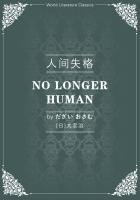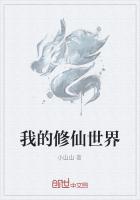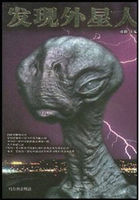In the little villages along the Saco River, in the year 1850 or thereabouts, the arrival and departure of the stage-coach was the one exciting incident of the day.
It did not run on schedule time in those days, but started from Limington or Saco, as the case might be, at about or somewhere near a certain hour, and arrived at the other end of the route whenever it got there. There were no trains to meet (the railway popularly known as the "York and Yank'em" was not built till 1862); the roads were occasionally good and generally bad; and thus it was often dusk, and sometimes late in the evening, when the lumbering vehicle neared its final destination and drew up to the little post-offices along the way.
However late it might be, the village postmaster had to be on hand to receive and open the mailbags; after which he distributed the newspapers and letters in a primitive set of pine pigeon-holes on the wall, turned out the loafers, "banked up" the fire, and went home to bed.
"Life" Lane was a jolly good fellow,--just the man to sit on the box seat and drive the three horses through ruts and "thank-you-ma'ams," slush and mud and snow. There was a perennial twinkle in his eye, his ruddy cheeks were wrinkled with laughter, and he had a good story forever on the tip of his tongue. He stood six feet two in his stockings (his mother used to say she had the longest Life of any woman in the State o' Maine); his shoulders were broad in proportion, and his lungs just the sort to fill amply his noble chest. Therefore, when he had what was called in the vernacular "turrible bad goin'," and when any other stage-driver in York County would have shrunk into his muffler and snapped and snarled on the slightest provocation, Life Lane opened his great throat when he passed over the bridges at Moderation or Bonny Eagle, and sent forth a golden, sonorous "Yo ho! halloo!" into the still air.
The later it was and the stormier it was, the more vigor he put into the note, and it was a drowsy postmaster indeed who did not start from his bench by the fire at the sound of that ringing halloo.
Thus the old stage-coach, in Life Lane's time, was generally called "The Midnight Cry," and not such a bad name either, whether the term was derisively applied because the stage was always late; or whether Life's "Yo ho!" had caught the popular fancy.
There was a pretty girl in Pleasant River (and, alas! another in Bonny Eagle) who went to bed every night with the chickens, but stayed awake till she heard first the rumble of heavy wheels on a bridge, then a faint, bell-like tone that might have come out of the mouth of a silver horn; whereupon she blushed as if it were an offer of marriage, and turned over and went to sleep.
If the stage arrived in good season, Life would have a few minutes to sit on the loafers' beach beside the big open fire; and what a feature he was, with his tales culled from all sorts of passengers, who were never so fluent as when sitting beside him "up in front!"
There was a tallow dip or two, and no other light save that of the fire.
Who that ever told a story could wish a more inspiring auditor than Jacob Bean, a literal, honest old fellow who took the most vital interest in every detail of the stories told, looking upon their heroes and their villains as personal friends or foes.
He always sat in one corner of the fireplace, poker in hand, and the crowd tacitly allowed him the role of Greek chorus.
Indeed, nobody could have told a story properly without Jake Bean's parentheses and punctuation marks poked in at exciting junctures.
"That 's so every time!" he would say, with a lunge at the forestick.
"I'll bate he was glad then!" with another stick flung on in just the right spot. "Golly! but that served 'em right!" with a thrust at the backlog.
The New England story seemed to flourish under these conditions: a couple of good hard benches in a store or tavern, where you could not only smoke and chew but could keep on your hat (there was not a man in York County in those days who could say anything worth hearing with his hat off); the blazing logs to poke; and a cavernous fireplace into which tobacco juice could be neatly and judiciously directed.
Those were good old times, and the stage-coach was a mighty thing when school children were taught to take off their hats and make a bow as the United States mail passed the old stage tavern.
Life Lane's coaching days were over long before this story begins, but the Midnight Cry was still in pretty fair condition, and was driven ostensibly by Jeremiah Todd, who lived on the "back-nippin'" road from Bonny Eagle to Limington.
When I say ostensibly driven, I but follow the lead of the villagers, who declared that, though Jerry held the reins, Mrs. Todd drove the stage, as she drove everything else.
As a proof of this lady's strong individuality, she was still generally spoken of as "the Widder Bixby," though she had been six years wedded to Jeremiah Todd. The Widder Bixby, then, was strong, self-reliant, valiant, indomitable. Jerry Todd was, to use his wife's own characterization, so soft you could stick a cat's tail into him without ruffling the fur.
He was always alluded to as "the Widder Bixby's husband;" but that was no new or special mortification, for he had been known successively as Mrs. Todd's youngest baby, the Widder Todd's only son, Susan Todd's brother, and, when Susan Todd's oldest boy fought at Chapultepec, William Peck's uncle.
The Widder Bixby's record was far different.
She was the mildest of the four Stover sisters of Scarboro, and the quartette was supposed to have furnished more kinds of temper than had ever before come from one household.
When Peace, the eldest, was mad, she frequently kicked the churn out of the kitchen door, cream and all,--and that lost her a husband.
Love, the second, married, and according to local tradition once kicked her husband all the way up Foolscap Hill with a dried cod-fish.















